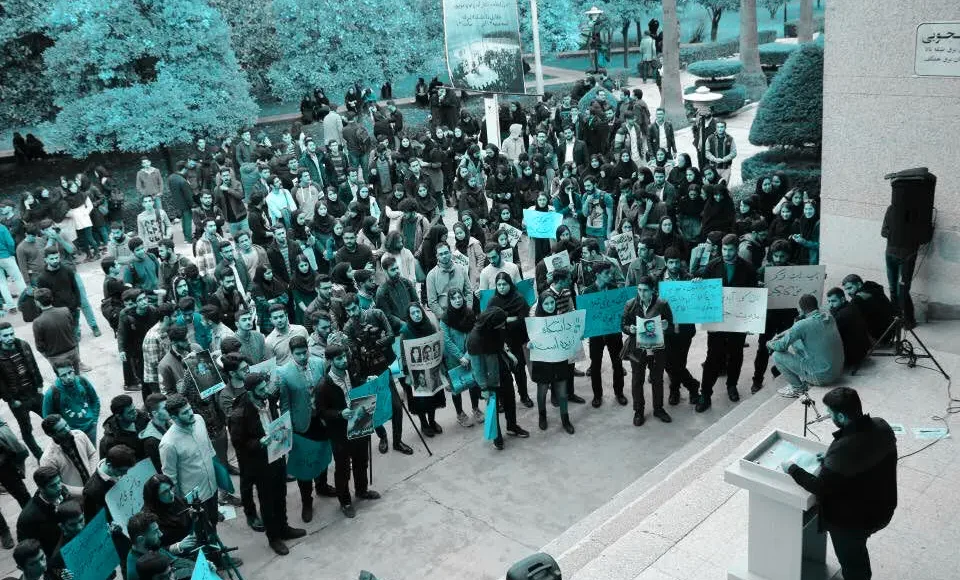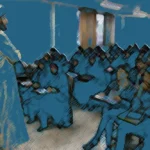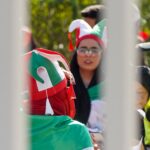The Iranian Sociological Association
First Steps in Defence of Academic Freedom
Leila Araghi[1]Leila Araghi is a Ph.D student at the Faculty of Social Sciences, University of Tehran.
Jun 15, 2024
Reading Time: 6 minutes
On fall 2023, the Iranian Sociological Association (ISA) website published a collection of 13 interviews and short essays about the independence of university and academic freedom in Iran. This collection was published a year after Woman, Life, Freedom movement in Iran and focus on the violations of the faculty and students’ rights during this period. This essay will review the various key points raised in these interviews and essays which are the first steps to set the foundation of comprehensive debates about violation of the academic rights in Iran. This requires complementary works by the ISA and other related institutions and scholars around existing questions on the situation, on factors involved in harassing universities and perspective of change and transformation of academia in Iran.
Parviz Ejlali, a retired professor of sociology at Allameh Tabataba’i University focuses on the question of science and the nature of university in Iran, in his essay University, academic life, and Damocles sword. He notes that critical thinking has a pivotal role in development of the university in general and social sciences in particular. Ejlali argues that new ideas and thoughts geminate and grow through dialogue and debate flowing free from government and society interferences. He calls for building a strong defense wall around the university, in terms of finance, administration and political matters to guarantee the required financial support, while saving its management from state interventions (in admin as well as scientific issues), while support the free dissemination of the produced knowledge to political society, parties and the parliament. Ejlali concludes that universities in Iran are protected only by shaky walls and academics have a life like Damocles, the Greek legendary figure with temporary royal power and a sword hung by one horsehair over his head. The state interference in the university life put the faculty in a situation of constant insecurity and dries their power to think and fulfill their societal responsibility. Sometimes the sword falls upon the university and destroys all its protective guards. The situation has weakened the university in general as scientific and intellectual hub.
Ne’mat Fazeli, the retired professor at the Institute for Humanities and Cultural Studies in his two essays, In defense of university and The discourse of exclusion argues that recent faculty dismissals goes beyond the professors teaching social sciences and humanities and includes many in the faculties of sciences, engineering, and medicine. He notes that ‘system’ is pushing us to take our job as a technical task not a social one. He writes:
Recent years have seen concerted efforts to portray scholars and university teachers as Westernized, secular, irreligious, unethical, and even foreign mercenaries promoting vice and corruption. This propagandistic framing fuels an exclusionary discourse that enables governments to marginalize and silence academic voices.
He argues that public support for dismissed professors reveals a widespread understanding of universities’ crucial role and their need for independence. Attacks on academia are perceived as assaults on society itself.
Saeed Moeidfar, a retired sociology professor from the University of Tehran and ISA president, articulated his views in two interviews titled They occupy the body but never the soul of the University and Future of universities and hiring and dismissal policies. Moeidfar asserts that the right to protest is both a civic right and an undeniable social fact. He points out:
The attempt to ideologize universities is a tactic employed by authoritarian regimes like the Soviet Union, Cuba, or totalitarian regimes like Nazi Germany. These regimes view universities as propaganda tools and reward centers for loyalists. A similar approach is now being adopted by certain Iranian officials and factions under the guise of ‘purification,’ echoing debates on ‘commitment vs expertise’ from the 1980s.
Moeidfar highlights the forced retirements and the elite migration and its domino effect as the results of such policies. He contends that these policies stifle scientific inquiry, impede intellectual exchange, and diminish the university’s capacity to engage with societal issues, thereby exacerbating academic brain drain. Moeidfar contends that the mass dismissal of faculty and their replacement with compliant individuals is a deliberate attempt aimed to stifle the university. However, he believes the university’s inherent nature will resist such efforts. Nonetheless, this situation will undoubtedly worsen the existing crisis of efficiency.
Hossein Serajzadeh, a sociology professor at Khwarizmi University and former ISA president who recently endured forced early retirement, contributes a piece to this collection addressing Academic freedoms and controversies raised in a defense session. Discussing Weber’s concepts of ‘value-relevance’ and ‘value-judgment,’ he argues that researchers inevitably bring personal values to their work. Consequently, he emphasizes the university’s essential role as a platform for diverse perspectives and opinions. He credits academic freedom as the cornerstone of developed universities, especially in the humanities, and underscores its indispensable role in the advancement of these fields.
Mohammad Zahidi Asl, a Professor of social work at Allameh Tabataba’i University, contributes to this collection by exploring the science and development relations in his interview. He argues that governments typically benefit from university-produced knowledge to fuel their developmental projects. Academic freedom, he asserts, is essential for this knowledge creation. Zahedi argues that the Reisi government’s attacks on universities stem from a belief that science is inconsequential to governance. He characterizes the Minister of Interior’s recent decision to hire 15,000 professors as unprecedented in both Iranian and global higher education. Concerned about the potential for a third cultural revolution, he echoes the worries of many scientific and cultural figures. Zahedi urges officials to examine the ideological and non-scientific purges that occurred during the early years of the revolution to prevent history from repeating itself. He writes:
There was once a push to Islamize all disciplines, including seemingly unrelated fields like medicine and engineering. Later, the focus shifted to social sciences, with attempts to create Islamic sociology and psychology. This movement gained momentum through the seminary-university integration initiated by Mr. Mesbah Yazdi during the early revolution. We experienced this firsthand, commuting between Tehran and Qom for two years. Consequently, some humanities fields, such as jurisprudence and law, were merged, while others were discontinued.
He criticizes this process, arguing that a partisan university ceases to be a university. Instead, it becomes an institution indoctrinated to produce individuals aligned with a specific ideology or faction. Such a university cannot function as a center for critical thinking or theoretical exploration. Freedom of speech and expression are inevitably stifled in this environment. Zahedi also criticizes the undermining of university boards of trustees. Established in the 1960s and 1970s to safeguard institutional autonomy, these boards were dissolved after the revolution but reinstated in the 2000s. He argues that by reducing boards to three members and assigning the policymaking authority to the Central Board of Trustees, “the boards are rendered as dependent bodies who have no power to protect university independence.”
Nasser Fakouhi, a professor at the Faculty of Social Sciences, University of Tehran, has emphasized the critical importance of governmental rationality in the contemporary world in his interview. He points out that scientific and technological advancements have presented societies and governments with existential challenges, the outcomes of which will determine their trajectories, and even their survival. Given this complexity, he argues that the university’s role has become increasingly crucial. Governing ‘a scorched earth,’ he contends, is not governing but delusion of governing.
Fakouhi recalls the original intent behind Tarbiat Modares University’s founding in the early years of the revolution: to cultivate a pool of loyal personnel for the political system. However, he emphasizes that this institution, like any other university, eventually transformed into a conventional higher education establishment.
Fakouhi acknowledges that university independence, both in Iran and globally, is a relative concept, suggesting that complete autonomy is unattainable. He provides no further elaboration on this point. Furthermore, he views the declining enrollment in arts and humanities programs and the subsequent brain drain as early warning signs of a potential university collapse.
Mohammad Hossein Panahi, a retired Professor from Allameh Tabataba’i University highlights the dual functions of the university in his paper, University, Society, and Political System. He emphasizes the institution’s role in both cultivating experts and generating research. He argues the only criterion for choosing professors is their ability and scientific ethics and it should be accepted that the independence and freedom of academics is necessary for their proper functioning and a researcher should not worry about job security in the process of producing science; otherwise, no new scientific production will occur, or the produced science will be “pseudo-science” and indefensible by rigorous scientific standards, to the detriment of society. A society whose resources are wasted without any serious and credible production taking place.
Mohammad Reza Kolahi, a member of the scientific board at the Research Institute for Cultural and Social Studies, highlights the significance of student research in Iran by examining the controversy surrounding Leila Hosseinzadeh’s dissertation defense. Hosseinzadeh’s research on the formation of autonomous government in Kurdistan cities sparked debate, underscoring the potential impact of student work. Kolahi attributes the neglect of student theses to a broader disregard for students’ role in scientific production. He argues that a thesis should be viewed as a distillation of the university’s core functions: the education and research. However, within a system that is based on a status appreciation of the professor-student relationship, students are perceived as passive knowledge consumption, theses are undervalued, and forgotten in their isolated. The process of writing them, as defending them becomes little more than a ritualistic hurdle. Kolahi advocates for public presentations and discussions of theses to elevate their significance.
In conclusion, the ISA’s compilation of essays on University Independence and Academic Freedom represents a vital initial step in fostering a much-needed dialogue within the academic community. Sustained engagement with this critical issue is imperative. While the contributions of retired professors are invaluable, a broader perspective is essential. To fully comprehend the challenges facing academia, the ISA should consider publishing firsthand accounts from a diverse group of faculty members, particularly those who have experienced job losses due to recent policies.
Endnotes
| ↑1 | Leila Araghi is a Ph.D student at the Faculty of Social Sciences, University of Tehran. |
|---|








Comments are closed.